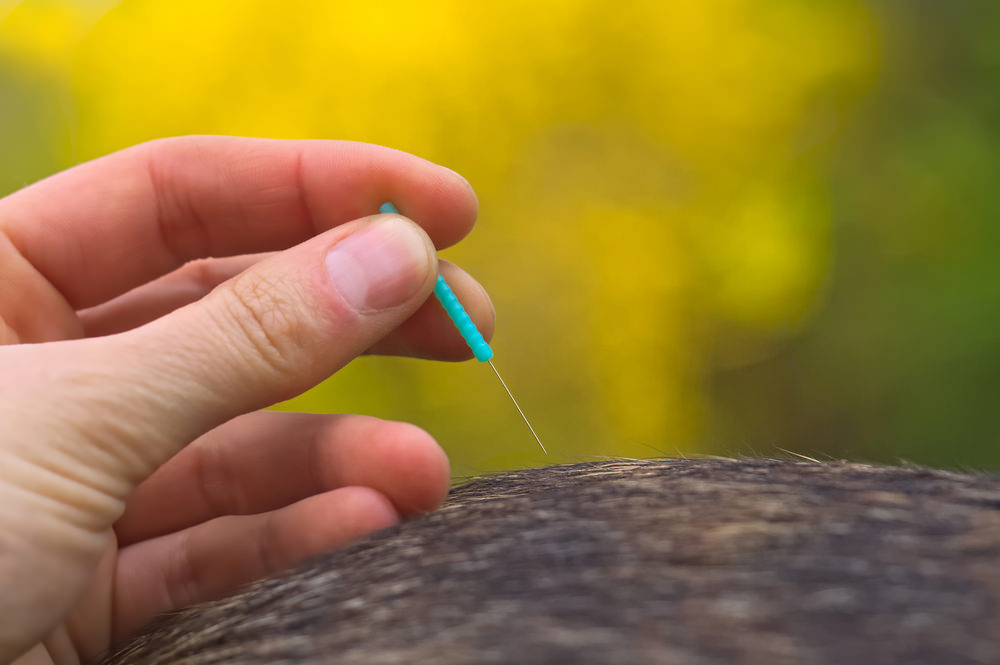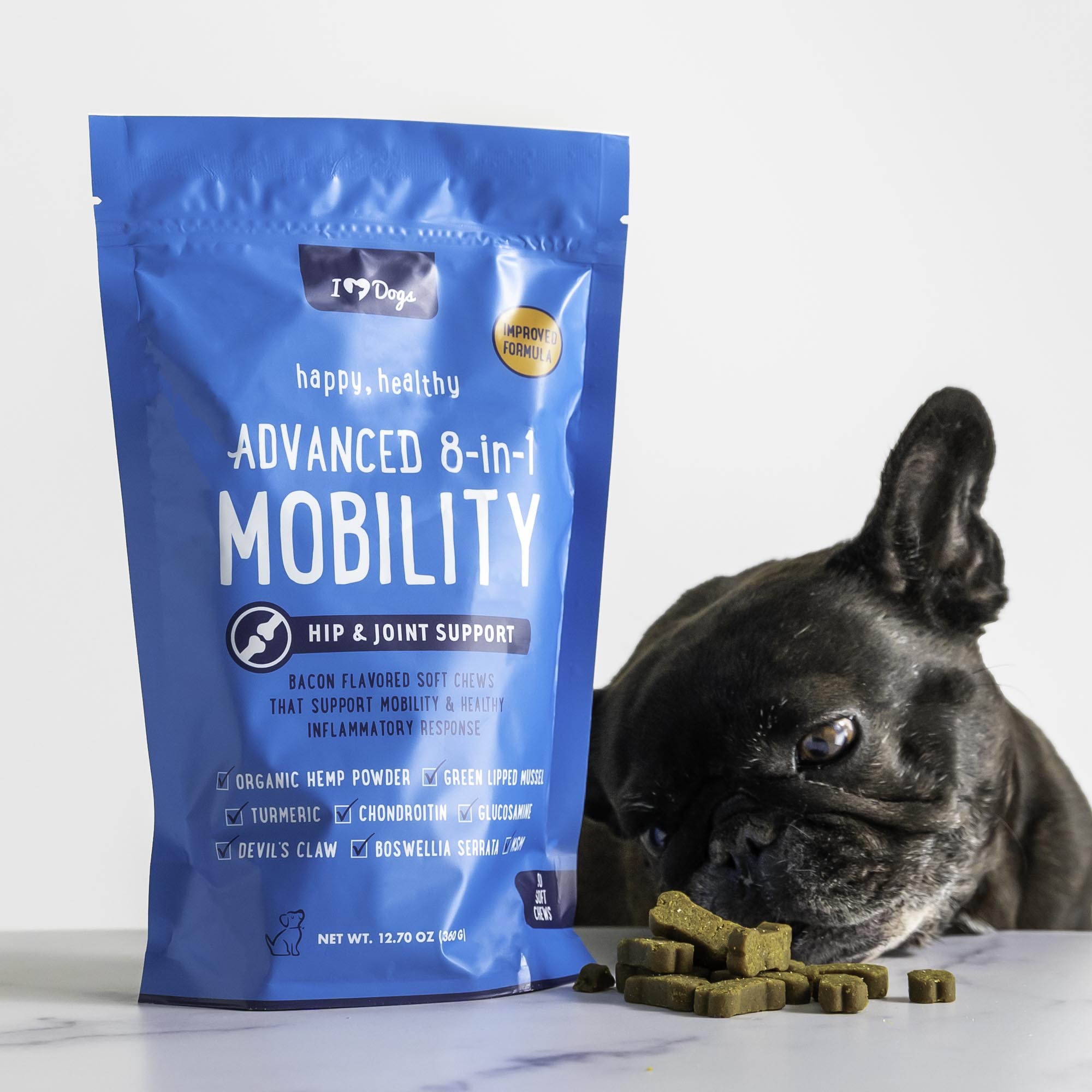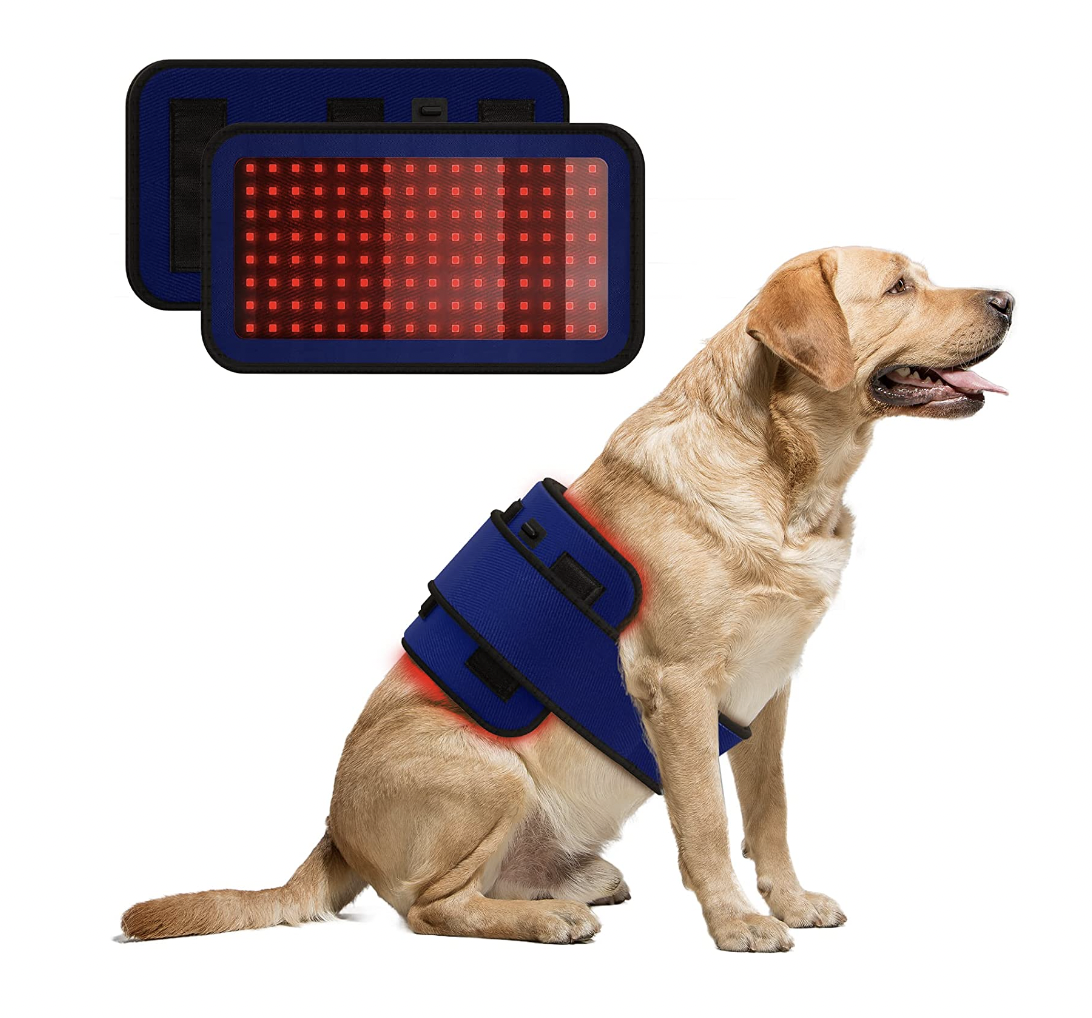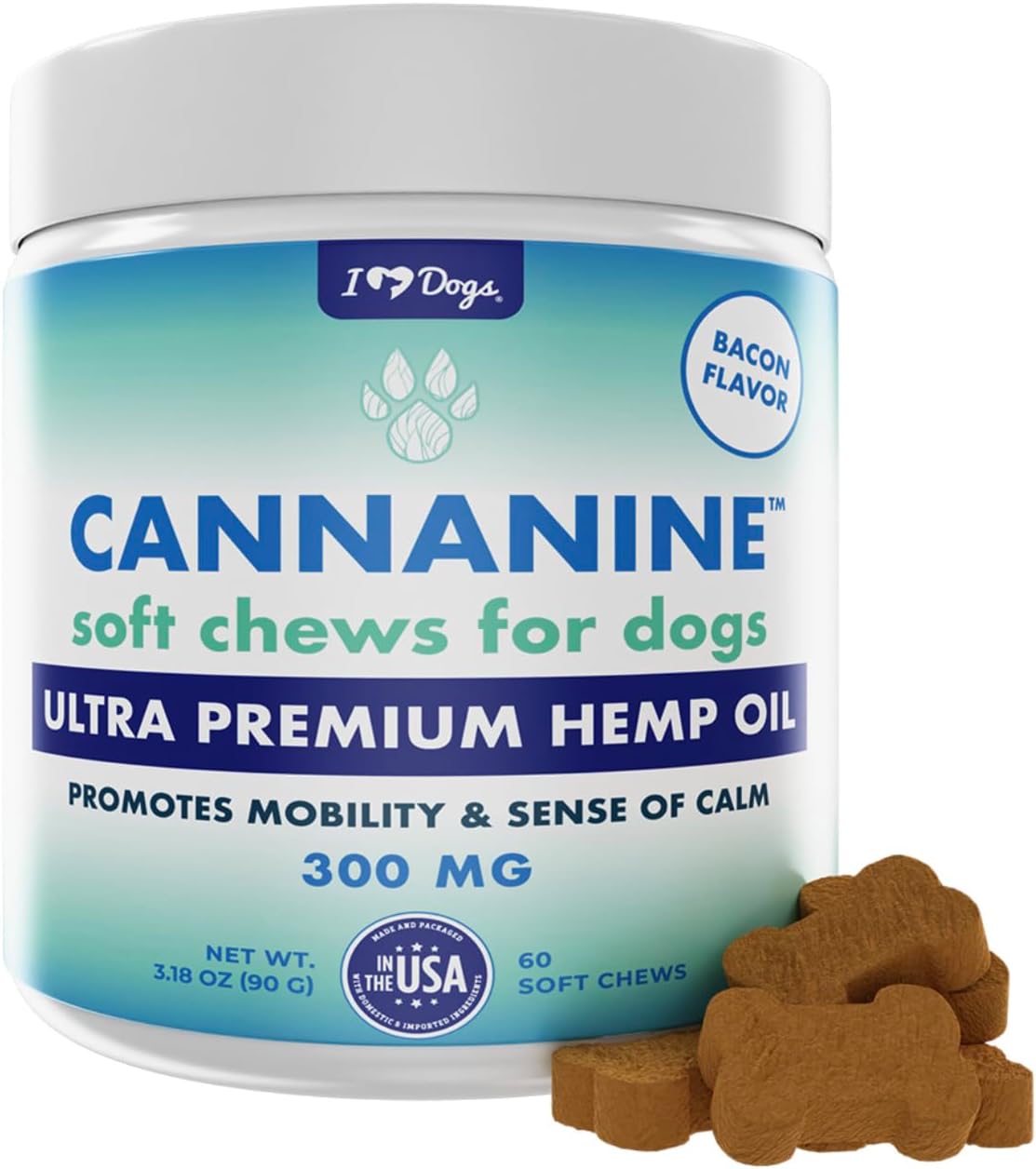
Treatments For Arthritis, Hip & Leg Problems
It’s excruciating to see your Jack Russell in pain. When you take a pet into your home you promise to love and care for it the best you can for as long as you can, but arthritis and joint pain can strike at any time and leave you feeling helpless.
Prescription NSAID pain relievers certainly have their place, but they can be tough on your Jack Russell’s liver and steroids come with a host of side effects. Luckily there are natural steps you can take to keep your dog comfortable.
Here are 10 drug-free ways to help your dog live pain-free. Be sure to consult your veterinarian before making any major changes to your dog’s diet, exercise or medication routine.
1. Maintain A Healthy Weight
The more extra weight your dog carries, the more strain his or her joints suffer. If your dog is overweight or obese, now is the time to start a weight loss regimen. If your arthritic dog is already at a healthy weight, be sure to maintain it with a healthy diet and gentle exercise.
2. Keep Moving
If your dog is diagnosed with arthritis you will definitely want to revamp his or her exercise routine, but staying active is important for joint health. Instead of long, vigorous walks or strenuous play sessions, try frequent shorter walks and short play sessions indoors on soft carpet.
3. Add Anti-Inflammatory Foods to Your Dog’s Diet
Certain foods are said to have natural anti-inflammatory properties. If your veterinarian feels it is safe, you can try adding papaya, alfalfa, celery, or ginger to your dog’s diet. Another ingredient that has become very popular in recent years is turmeric for dogs, which has been shown to have incredibly strong anti-inflammatory effects.
4. Canine Acupuncture
It may seem shocking that a dog would tolerate dozens of needles being placed into his or her body, but the acupuncture trend has become quite popular in the animal world and has shown promising results for many common canine ailments, including joint pain.

5. Physical Therapy
Many veterinary hospitals and specialty centers now offer advanced services for dogs with injuries, arthritis and mobility issues. Highly trained staff members can help keep your dog’s pain at bay with techniques like hydrotherapy. They can also teach you how to provide physical therapy at home.
6. Laser Therapy
One of the newer innovations in reducing inflammation and pain in pets is low-level laser therapy. Your veterinarian will create a schedule of treatments based on your dog’s individual needs. The treatments are easy, painless and relatively quick. You can read more about the best red light therapy devices for dogs here.
7. Massage Therapy
The same massage techniques that help relieve your stiff muscles and aching joints can also benefit your arthritic pup. Many human massage therapists also work on pets and holistic veterinarians often offer this service to their clients.
8. Prevent Slipping
Hard wood and tile floors can be like mine fields for arthritic pets. Try laying down a series of throw rugs and runners to help your dog navigate the house. Keep toenails trimmed and consider friction socks to prevent slipping.
9. Provide A Supportive Orthopedic Dog Bed
An unsupportive mattress can wreak havoc on sore joints. Be sure your dog’s bed is designed for pups with arthritis. You can review our roundup of the best orthopedic beds for dogs here.

10. Supplements
Not all canine joint supplements are created equal. Many products only contain one active ingredient (glucosamine being the most popular) while others contain more than one. For example, this 8-in-1 canine joint supplement contains not just glucosamine, but also turmeric, green lipped mussel, MSM, chondroitin, devil’s claw, and more. It’s important to choose a joint health supplement that offers the correct therapeutic dosage for your Jack Russell’s needs and is made from the highest quality ingredients.
To learn more about the 8-in-1 Canine Joint Supplement, visit here.

11. Hemp Extract Supplements
In last last 5 years, many studies have been done on the effectiveness of full and broad spectrum hemp oil in relieving support an arthritic dog’s mobility. Here at iHeartDogs, we use and recommend that Cannanine brand of hemp chews available on Amazon.
Frequently Asked Questions:
Do Jack Russells Need Hip And Joint Supplements?
Jack Russell dogs tend to have joint problems, including elbow and hip dysplasia. Maintaining a healthy weight and giving regular joint supplements to dogs with poor hips will help keep their joints lubricated. Genetic disorders often lead to problems but can create excruciating joint discomfort. However, the right supplements taken at a young age can prevent these problems or at least slow them down.
What Supplements Are Good For Jack Russells Arthritis?
Jack Russells are busy dogs who love to chase and play, which taxes their bodies, especially their limbs. Healthy skeletal structures contain crucial organic chemical substances called glycosaminoglycans, including glucosamine and chondroitin sulfate. Together with methylsulfonylmethane (MSM), they aid in safeguarding your pet’s joints during movement and exercise, notably the delicate and always crucial cartilage.
What Can I Give My Jack Russell For Joint Pain & Arthritis?
As joint pain and arthritis are common among dogs across all breeds, it’s easy to find supplements to help. However, you want to ensure you buy the best quality ingredient supplements for the most benefit. At iHeartDogs, you can find several dog treats with added nutrients to improve their life. Whether you want to try CBD oil to reduce inflammation or improve overall health, or a treat made specifically for a pet’s mobility, we have you covered.
Is Cosequin Or Dasuquin Better For A Jack Russell?
Many dog owners are unsure whether medication is superior between Dasuquin and Cosequin for treating canine joint pain as both seem quite similar besides the price. Truthfully, they are similar as both contain sodium chondroitin sulfate and glucosamine, two substances essential for keeping healthy joints. However, they do have differences.
For instance, Cosequin uses healthy omega-3 fatty acids to help fight joint problems, while its counterpart uses unsaponifiable’s from avocado and soybeans instead of fatty acids. While both are effective, Cosequin wins as it contains omega-3 fatty acids. However, your dog’s veterinarian should be part of the decision as they know all of your pet’s health needs.
Do Small Dog Breeds Need Joint Supplements?
Supplements can help avoid unnecessary joint injury in small dogs, which is especially important as they get older and more likely to have joint problems. In addition, smaller dogs are more likely to have more serious difficulties because they have to put in a far greater amount of effort to move compared to larger dogs. Smaller dogs are forced to repeatedly exert themselves in order to get to locations that are out of their reach, which creates additional strain on their joints.
Because of the additional strain on their joints to get to places, smaller dogs may need joint supplements even more than other dogs. Little dogs are at a loss in a world made for big people. Even cats have an advantage despite their diminutive size as they have joints designed for jumping on to just about anything anywhere.
What Is The Best Joint Care Supplement For Jack Russells?
To aid in the treatment of joint issues in dogs, the iHeartDogs Cannanine supplement makes use of CBD oil in the form of little chews. Mobility Hip and joint care can provide a range of fantastic benefits to dogs who are suffering discomfort in their joints. This is especially true if the dog has hip and joint problems. In addition to providing glucosamine and chondroitin, these chews also include CBD oil, making them a fantastic natural nutritional supplement. This pill will reduce pain and inflammation, which will ultimately lead to improvements in general health.
Are Fish Oil Supplements Good For Jack Russells Arthritis?
Omega-3 fatty acids have been found to be effective in treating canine arthritis and chronic kidney disease. As with anything that could have an impact on your dog’s health, consult your vet before adding fish oils to your dog’s diet as a supplement. Like humans, dogs need a diet rich in omega-3, -6, and -9 fatty acids. They are essential in reducing allergy symptoms, including itching and skin irritation.
Sadly, many processed and homemade meals, especially those high in omega-3 fatty acids, are deficient in at least some necessary fatty acids. The finest source of omega-3s is fish which you can often find in dog foods now. These are absolutely one of the best additions to your Jack Russells diet as they are prone to hip and joint problems.
Can Glucosamine Worsen Jack Russells Joint Problems?
As glucosamine is more of a food supplement than a medication, a dog would only ever overdose if they consumed an extremely large quantity. Even then, the worst that would happen would be diarrhea and vomiting as the body attempts to expel the excess. Nevertheless, if the joint supplement also contains active substances, that can quickly lead to an overdose with serious ramifications.
If the glucosamine supplement you give your dog includes zinc or vitamin D, consult with your veterinarian right away. In most cases, dogs cannot consume too much glucosamine or chondroitin. It is crucial to make sure they are getting the appropriate dosage of vitamins for their weight and needs, but it is unlikely they would take too much and become ill.
What Are The Signs Of Hip Dysplasia In Jack Russells?
Smaller dogs may display symptoms earlier in life, and it’s possible that the joint issue will develop into arthritis and severe joint discomfort as the dog gets older. Jack Russells, who have trouble getting up off the ground, walking with a limp, or standing back up after resting, may have progressive hip dysplasia. The Jack Russell breed is also prone to the condition known as elbow dysplasia.
Do Eggs Help Jack Russell’s Arthritis?
Eggs are an excellent source of protein and provide a significant quantity of the essential fatty acids and amino acids that dogs require. Egg shells are a good source of calcium for canines that require an increased amount of calcium in their diet. When ground properly to a fine powder, you can add eggshells to your dog’s food to help alleviate some of the discomforts. Older dogs are far more likely to experience joint disorders and can benefit from an improved range of motion in their joints.
What Is The Healthiest Food For A Jack Russell’s Joints?
Many dog foods now include glucosamine, omega-3 fatty acids, and other benefits for mobility and joints. The healthiest dog foods use these ingredients and avoid unnecessary filler ingredients like corn and excessive grains. Talk to your dog’s vet to get recommendations on the best food for your dog’s breed, size, weight, and health conditions. Also, consider supplementing if your dog does not like any of the food that can help his joints.
What Does Coconut Oil Do For Jack Russells Joints?
Coconut oil has long been recommended as an excellent all-natural way to reduce inflammation, and this may be true for humans but not for dogs. New research suggests that coconut oil is inflammatory and can cause a leaky gut in dogs, especially smaller ones. It may cause stomach upset, loose stools, diarrhea, and irritation of the gut lining regardless of the dosage.
While the various acids may help with many aspects of a dog’s health, the mixture of all the acids tends to be too much for sensitive stomachs. Constant stomach upset will certainly not help your dog to live their best life. The various acids in coconut oil may help dogs with arthritic problems who do not have sensitive stomachs. Consult your veterinarian before making a decision because coconut can be too harsh on its own.
What Dog Foods Are High In Glucosamine?
Blue Buffalo and Diamond Naturals produce glucosamine-rich foods that can help keep your bulldog’s joints healthy. If you are unable to find a food that contains this component that your dog enjoys, consider taking supplements. Keep in mind only foods with shellfish have natural glucosamine, so look for options with shellfish or consider supplementing.
- Best Joint Supplement for Dogs
- Best CBD Gummies for Dogs
- Goat's Milk for Dogs
- Skin & Coat Supplements for Dogs
- Weight Gain Supplements for Dogs
- Muscle Building Supplements for Dogs
- Heart Supplements for Dogs
- Multivitamins for Dogs
- Pill Pockets for Dogs
- Digestive Enzymes for Dogs
- Turmeric for Dogs
- Liver Supplements for Dogs
- Tear Stain Supplement for Dogs
- Breath Fresheners for Dogs
- Kidney, Urinary, & Bladder Supplements for Dogs
- Stool Eating Deterrent for Dogs
- Eye Supplements for Dogs
- Melatonin for Dogs
- Apple Cider Vinegar for Dogs
- Green Lipped Mussels for Dogs
- L Theanine for Dogs
- Chondroitin Supplements for Dogs
- MSM for Dogs
- Valerian Root for Dogs
- Chamomile for Dogs
- Boswellia for Dogs
- L Tryptophan for Dogs
- Yucca for Dogs
- Licorice Root for Dogs
- Bromelain for Dogs
- Papain for Dogs
- Devil's Claw for Dogs
- Quercetin for Dogs
- Hemp gummy for dogs
- Best Hemp Dog Treats
- Best Hemp Oil for Dogs
- Best Calming Treats, Chews, & Supplements for Dogs
- Best Bone Broth for Dogs
- Best Fish Oil for Dogs
- Best Probiotics for Dogs
- Best Hip Dysplasia Supplements for Dogs
- Best Colostrum for Dogs
- Best Quercetin for Dogs
- Best Greens for Dogs Supplements
- Best Vitamin C Supplements for Dogs
- Best Probiotic for Dog with Allergies
- Best Taurine Supplements for Dogs
- Best Dog Food Toppers
- Best Anal Gland Supplement for Dogs
- Best Dog Probiotic Powder
- Best CoQ10 Supplement for Dogs
- Best Liquid Glucosamine for Dogs
- Best Wrinkle Creams, Balms, and Wipes for Dogs
- Best Puppy Calming Treats
- Best Colloidal Silver for Dogs
- Best Adaptogen Supplements for Dogs
- Best Cognitive Supplements for Dogs
- Best Bee Pollen for Dogs
- Best Vitamin A Supplements for Dogs
- Best Vitamin E Supplements for
- Best Liquid Glucosamine Supplements for Dogs
- Best SAM-e Supplements for Dogs
- Best Hyaluronic Acid Supplements for Dogs
- Best Apple Cider Vinegar Supplements for Dogs
- Best Diarrhea Medicine for Dogs
- Best Milk Thistle for Dogs
- Best Turkey Tail Mushroom Supplements for Dogs
- Best Astaxanthin Supplements for Dogs
- Best Lutein Supplements for Dogs
- Best Electrolyte Supplements for Dogs
- Best Coconut Oil for Dogs
- Best Prenatal Vitamins for Dogs
- Best Puppy Milk Replacements
- Best Iron Supplements for Dogs
- Best Dewormer Products for Dogs
- Best Mange Medications for Dogs
- Best Cough Relief Products for Dogs
- Best Sinus Relief Products for Dogs
- Best Collapsed Trachea Supplements for Dogs
- Best Fireworks Anxiety Relief Products for Dogs
- Best Thunderstorm Anxiety Relief Products for Dogs
- Best Travel Anxiety Relief Product for Dogs
- Best Supplements for a Dog with a Torn ACL
- Best Supplements for a Dog with Patellar Luxation
- Best Supplements for a Dog with Intervertebral Disc Disease
- Best Zinc Supplements for Dogs
- Best Biotin Supplements for Dogs
- Best Tart Cherry Supplements for Dogs
- Best Resveratrol Supplements for Dogs
- Best Ginkgo Biloba Supplements for Dogs
- Best Ashwagandha Supplements for Dogs
- Best Supplements for Dogs with Cushing's Disease
- Best Adrenal Supplements for Dogs
- Best NAD+ Supplements for Dogs
- Best NMN Supplements for Dogs
- Best Supplements for Dogs with Dementia
- Best Supplements for Dogs with CCD(Canine Cognitive Dysfunction)
- Best Fiber Supplements for Dogs
- Best Spirulina for Dogs
- Best Hairball Remedies for Dogs
- Best Eye Drops for Dogs with Allergies
- Best Magnesium Supplements for Dogs
- Best Brushes for Double-Coated Dogs
- Best Dandelion Root Supplements for Dogs
- Best Probiotic for Dogs with Yeast Infections
- Best Flaxseed Oil for Dogs
- Best Chamomile Supplements for Dogs
- Best Lavender Supplements. Treats & Sprays for Dogs
- Best Collagen Supplements for Dogs
- Best Kelp Supplements for Dogs
- Best Activated Charcoal for Dogs
- Best Slippery Elm Supplements for Dogs
- Best Supplements for Dogs with Seizures & Epilepsy
- Best Antioxidant Supplements for Dogs
- Best Ubiquinol Supplements for Dogs
- Best Hormone & Glandular Supplements for Dogs
- Best Thyroid Supplements for Dogs
- Best Iodine Supplements for Dogs
- Best Dog Shedding Supplements for Dogs
- Best Detox Supplements for Dogs
- Best Postbiotics for Dogs
- Best Aspirin Products for Dogs
- Best Dog Anti-Nausea Products
- Best Dog Mouthwashes
- Best Camelina Oils for Dogs
- Best Hemp Seed Oils for Dogs
- Best Natural Anti-Inflammatories for Dogs
- Best Cancer Supplements for Dogs
- Best Sardine & Anchovy Oils for Dogs
- Best Fatty Acid Supplements for Dogs
- Best Chia Seed Supplements & Treats for Dogs
- Best Olive Oils for Dogs
- Best Amino Acid Supplements for Dogs
- Best Moringa Supplements for Dogs
- Best Echinacea Supplements for Dogs
- Best Cranberry Supplements for Dogs
- Best D-Mannose Supplements for Dogs
- Best Nettle Leaf Supplements for Dogs
- Best Marshmallow Root Supplements for Dogs
- Best Astragalus Supplements for Dogs
- Best Pumpkin Seed Supplement for Dogs
- Best Supplements for a Dog Wetting The Bed
- Best Blueberry Supplement for Dogs
- Best Bromelain Supplements for Dogs
- Best Yucca Supplements for Dogs
- Best Ginger Supplements for Dogs
- Best Rosehip Supplements for Dogs
- Best Allergy Medicines for Dogs
- Best Reishi Mushroom Supplement for Dogs
- Best Maitake Mushroom Supplement for Dogs
- Best Chaga Mushroom Supplement for Dogs
- Best Shiitake Mushroom Supplement for Dogs
- Best Cordyceps Mushroom Supplement for Dogs
- Best Lion's Maine Supplement for Dogs
- Have question? - Ask in our Dog Health Forum


 Toledo, United States.
Toledo, United States.